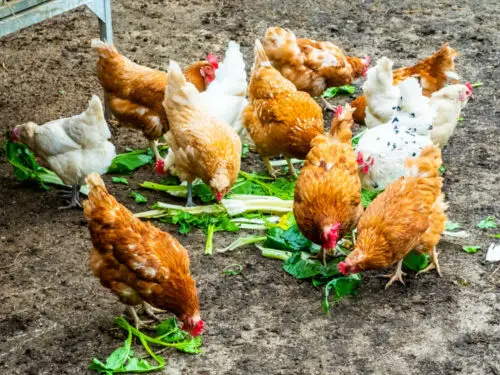Raising chickens can be a fun and rewarding hobby, but it’s important to be aware of the costs associated with keeping these feathered friends.
From purchasing the birds to housing and equipment, feed, and veterinary care, there are many expenses to consider. In this post, we’ll take a deep dive into the costs of raising chickens, including the initial cost of purchasing the birds, the cost of housing and equipment, the cost of feed, and the cost of veterinary care.
Whether you’re a seasoned chicken keeper or a newcomer to the world of poultry, this guide will help you understand the costs and make an informed decision about whether raising chickens is right for you.
Purchasing the birds
The initial cost of purchasing chickens can vary widely depending on a number of factors, including the breed, age, and quality of the birds. Here are some things to consider when determining the initial cost of purchasing chickens:
- Breed: Different breeds of chickens have different characteristics, and some may be more expensive than others. For example, rare or heritage breeds may be more expensive than more common breeds.
- Age: Chickens can be purchased as chicks, juveniles, or adults. Chicks are generally the least expensive option, but they require more care and may not start laying eggs for several months. Juvenile and adult chickens are more expensive, but they are usually closer to laying age and may start producing eggs more quickly.
- Quality: The quality of the chickens you purchase can also affect the price. Chickens that are well-bred and in good health may be more expensive than those that are poorly bred or in poor health. It’s important to choose a reputable source when purchasing chickens to ensure that you receive healthy, well-cared-for birds.
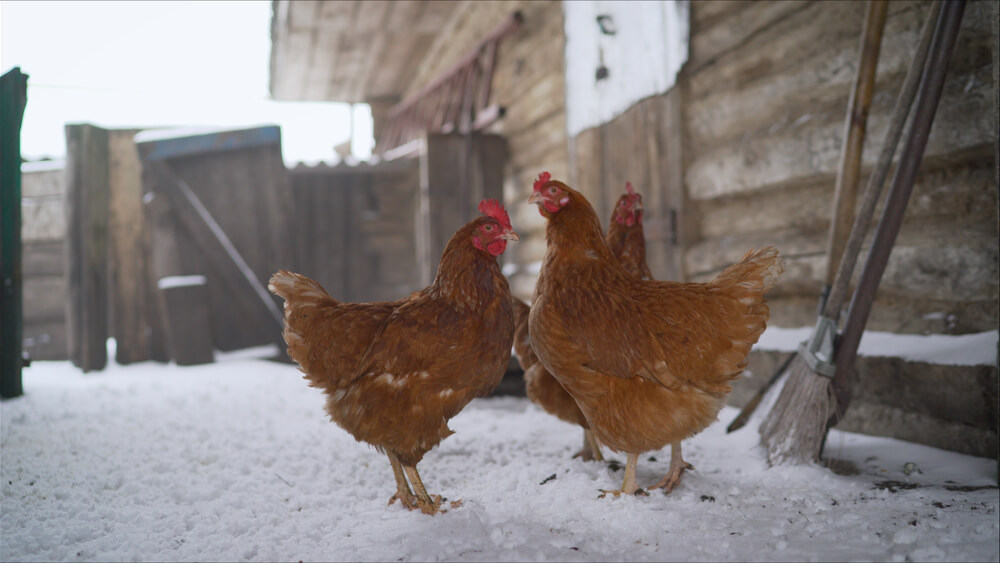
Overall, you can expect to pay anywhere from a few dollars for a chick to several hundred dollars for a mature bird. It’s a good idea to do some research and shop around to find the best deal. You may also want to consider purchasing eggs to hatch rather than buying chicks, as this can be a more cost-effective option.
Housing and Equipment
The cost of housing and equipment is an important consideration when raising chickens. Chickens need a secure and comfortable place to live, and this will require a coop and run. The cost of a coop and run will depend on a number of factors, including the size of the coop, the materials used, and any additional features you want to include.
You have a few options when it comes to the coop and run. You can build your own coop using plans or kits, which can be a cost-effective option but will require some time and effort. You can also purchase a prefabricated coop, which will be more expensive but will be ready to use right out of the box. The cost of a prefabricated coop can range from several hundred dollars for a basic model to several thousand dollars for a larger, more luxurious coop.
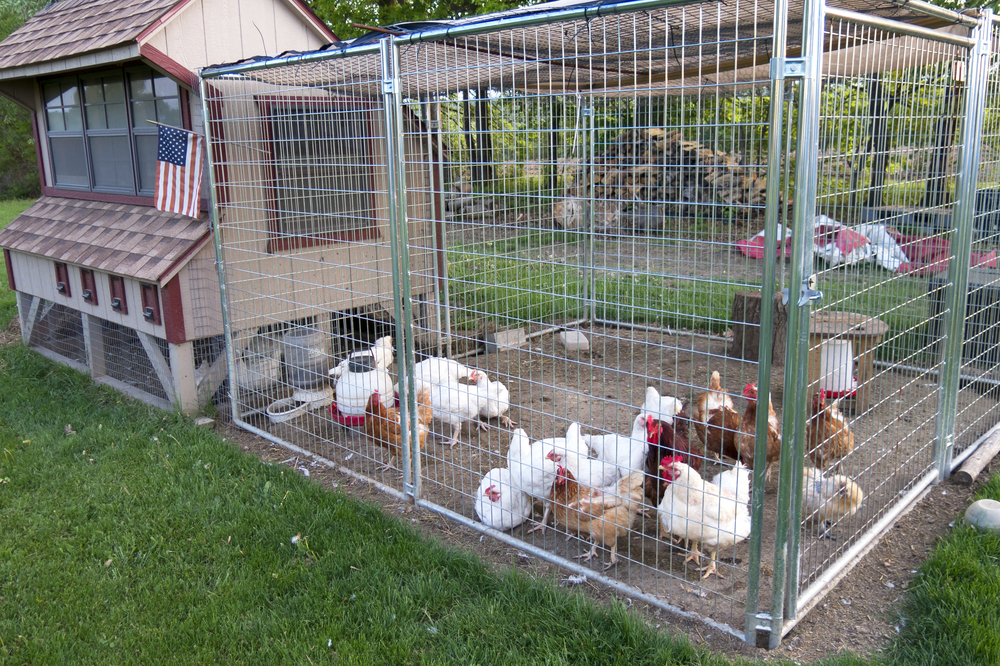
In addition to the coop, you’ll need to purchase equipment such as feeders, waterers, and nesting boxes. The cost of these items will depend on the size and type you choose. It’s a good idea to invest in high-quality equipment to ensure that it lasts and to minimize the risk of problems such as leaks or spills.
Overall, you can expect to spend several hundred dollars or more on housing and equipment when raising chickens. It’s a good idea to do some research and shop around to find the best deal. You may also want to consider purchasing used equipment to save money. Just be sure to inspect the equipment carefully before buying to make sure it is in good condition.
Chicken feed
Feed is an important consideration when raising chickens, as it provides the nutrients they need to stay healthy and productive. Chickens require a balanced diet that includes a mix of grains, protein, and other nutrients. The type of feed you choose will depend on the age and stage of development of your chickens, as well as your specific goals (such as egg production or meat production).
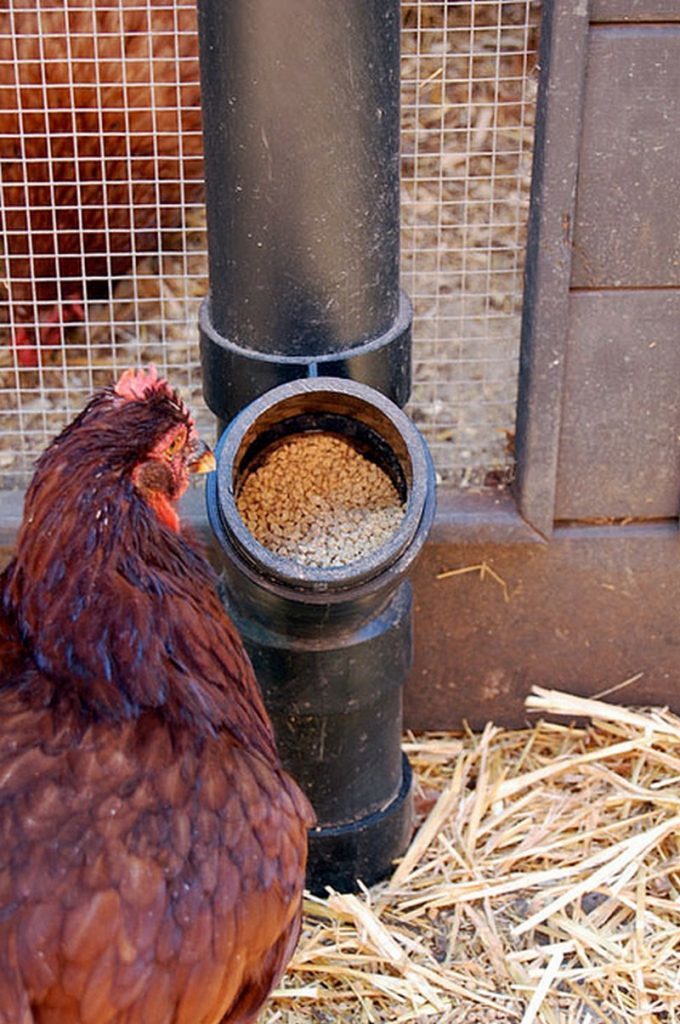
There are a few different types of chicken feed available:
- Starter feed: This type of feed is designed for chicks and is high in protein to support their growth and development.
- Grower feed: This type of feed is designed for chickens that are 6-20 weeks old and is lower in protein than starter feed.
- Layer feed: This type of feed is designed for chickens that are laying eggs and is formulated to provide the nutrients they need to produce eggs.
- Broiler feed: This type of feed is designed for chickens that are being raised for meat and is formulated to support rapid growth.
- Scratch feed: This type of feed is a supplement that can be fed to chickens in addition to their regular feed. It is high in carbohydrates and is often used as a treat or to encourage foraging behavior.
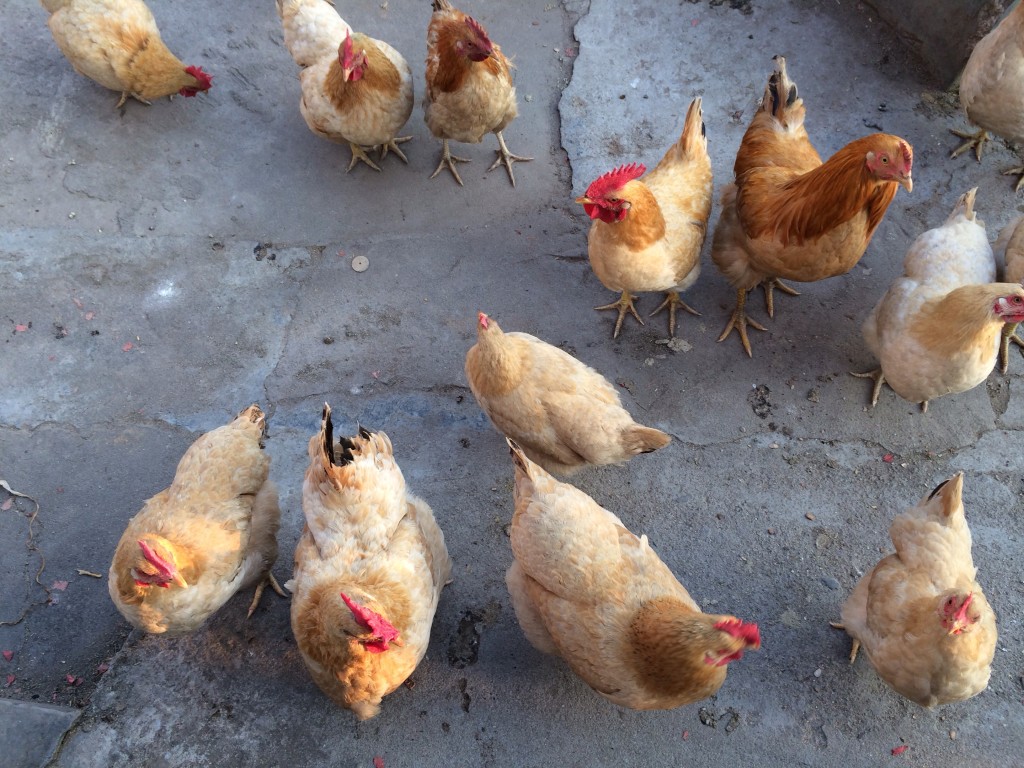
The cost of feed will depend on the type of feed you choose, as well as the size and number of your chickens. You can expect to spend several hundred dollars or more per year on feed. It’s a good idea to shop around and compare prices to find the best deal, and to purchase feed in bulk to save money.
You may also want to consider growing your own feed or using kitchen scraps as a supplement to reduce your feed costs.
Veterinary care
The cost of veterinary care is an important consideration when raising chickens, as they can sometimes get sick or injured and may require medical attention. The cost of veterinary care will depend on the specific needs of your chickens and the type of treatment they require.
Some common chicken health issues that may require veterinary care include respiratory infections, egg bound, lice or mites, and injuries from predators. Treatment for these issues may include medications, procedures, or surgeries. The cost of treatment can range from a few dollars for a simple medication to several hundred dollars or more for a complex procedure.
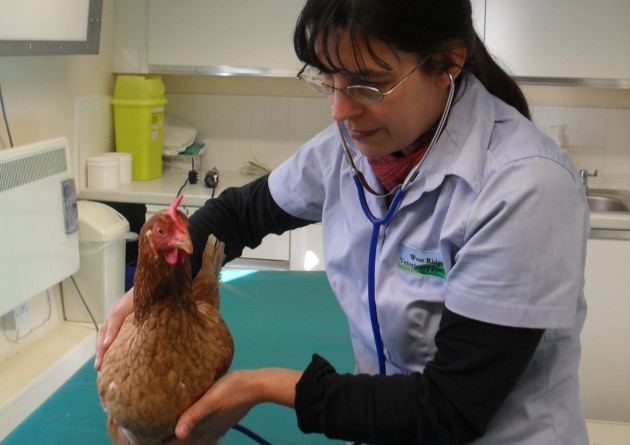
It’s a good idea to familiarize yourself with common chicken health issues and to have a plan in place for handling them. This may include keeping a supply of basic medications on hand and knowing where to find a veterinarian who is experienced in treating chickens. It’s also a good idea to practice good biosecurity measures to prevent the spread of diseases, and to keep your chickens well-fed and well-cared-for to help prevent health issues.
Overall, the cost of veterinary care can vary widely and will depend on the specific needs of your chickens. It’s a good idea to budget for this expense and to be prepared to handle unexpected medical costs if they arise.
Conclusion
In conclusion, the cost of keeping chickens can vary significantly depending on the type of chickens you have, the size of your coop and run, and your location. Factors such as the cost of purchasing chickens, building or purchasing a coop and run, purchasing feed and bedding, and buying supplies can all contribute to the overall cost.
A small flock of chickens can cost a few hundred dollars per year to keep, while a larger flock can cost several thousand dollars per year. It is important to consider all of these costs when deciding whether or not to keep chickens and to budget accordingly.
sources:
https://www.nidirect.gov.uk/articles/keeping-chickens
https://www.dpi.nsw.gov.au/__data/assets/pdf_file/0005/125690/poultry-keeping-on-a-small-scale.pdf
https://www.ers.usda.gov/data-products/chart-gallery/gallery/chart-detail/?chartId=104642
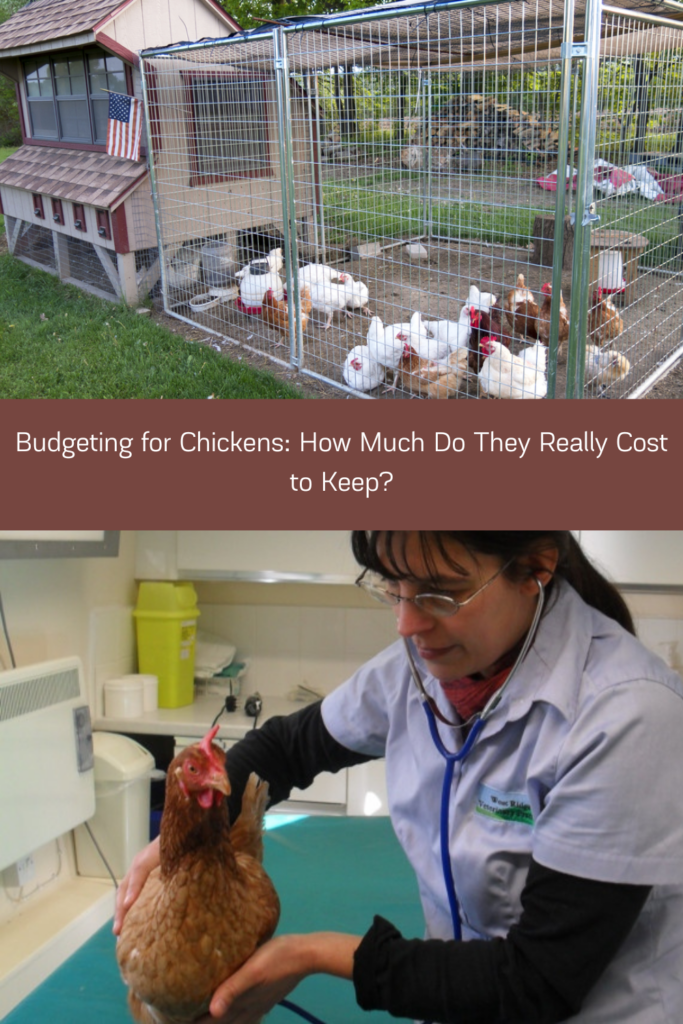
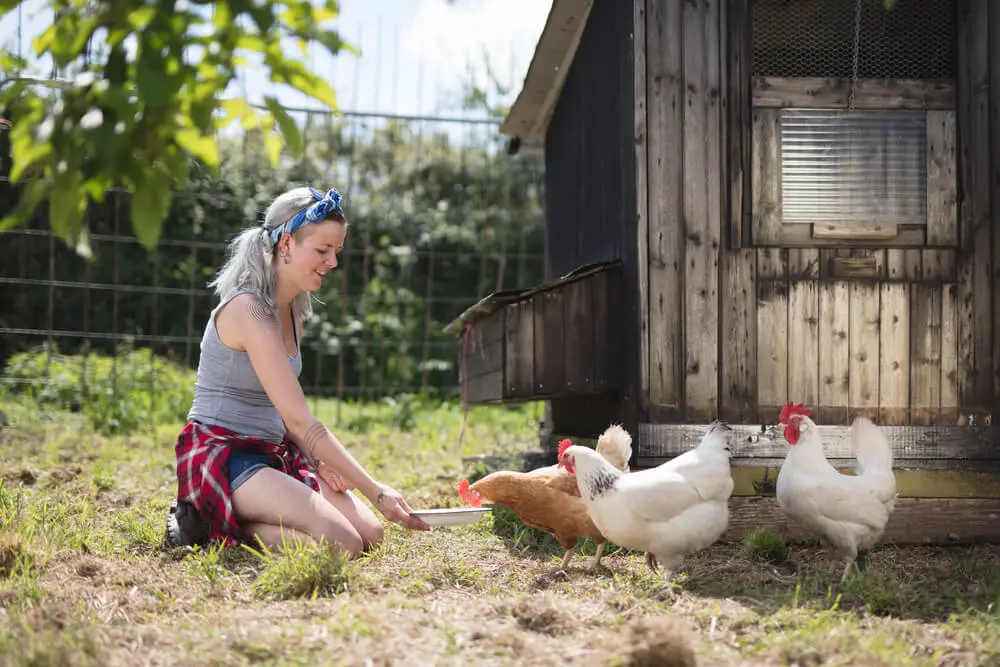
Shannon Stansberry has been engaged in the business of raising chickens for more than 12 years. In 2016, she accomplished the Agriculture & Natural Resources program at Mt. San Antonio College. At present, she tends to more than 80 chickens on her 4-hectare farm. Shannon regularly shares her insights and experience on how to raise healthy and contented chickens on the platform Typesofchickens.com
